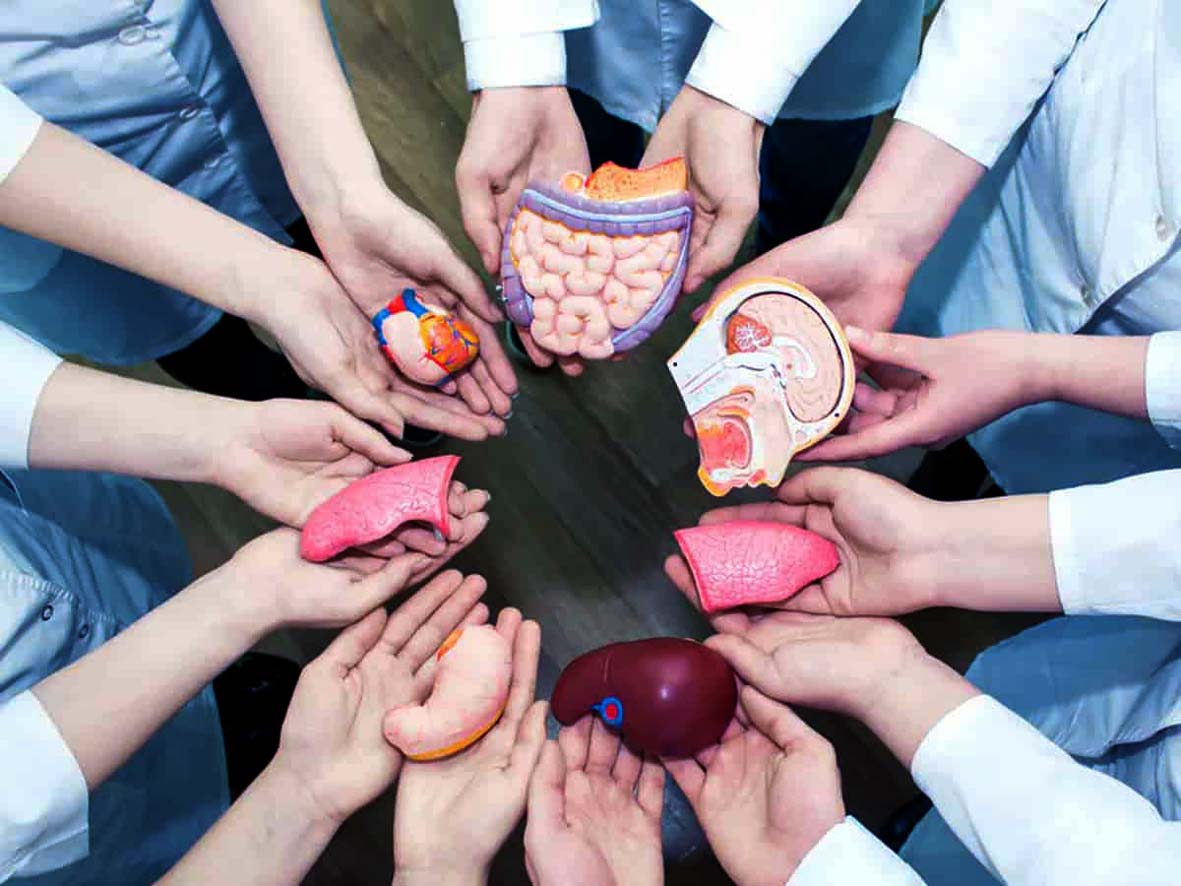Dr Aditya Pawar
Organ donation is a selfless act that has the potential to save lives and instill hope in numerous individuals in need. In a diverse country like India, where religion plays a significant role in people’s lives, it becomes crucial to comprehend the perspectives and beliefs surrounding organ donation within various religious communities. Research conducted so far on public attitudes and awareness regarding organ donation in India reveals a low level of public awareness, misconceptions related to religious beliefs and the requirement for family consent. Religious considerations may often serve as an important reason why patients decline organ donation. This article aims to provide a concise examination of the perspectives of major religions in India regarding organ donation.
Hinduism, being the predominant religion in India, encompasses a wide array of beliefs and practices. Hinduism promotes the values of selflessness and compassion towards others. While specific views on organ donation may vary among individuals and sects, the majority of Hindu scholars and leaders support the notion of organ donation as an act of “daan” (charity) or “seva” (service). The concept of “shareer daan” (donation of the body) after death is seen as a virtuous deed that can benefit others and bring spiritual fulfillment. It is important to note the concept of “daan” (charitable giving) differs from “bhiksha” (receiving in debt) and “dakshina” (repayment of goods and services received). Many Hindu scriptures and epics provide general principles, values, and examples for individuals to lead a virtuous life. For instance, Rishi Dadhichi selflessly sacrificed his life, allowing his bones to be utilized in crafting the powerful weapon called Vajra, which was bestowed upon Indra, the King of the gods. A verse from the Bhagavad Gita (Chapter 2, Verse 22): Vasamsi jirnani yatha vihaya, navani grhnati naro ‘parani, tatha sarirani vihaya jirnany, anyani samyati navandi dehi” and it can be translated as:”Just as a person discards old clothes and wears new ones, similarly, the soul discards worn-out bodies and acquires new ones.”
Islam places emphasis on the importance of saving lives and helping others. Islamic teachings encourage acts of charity and prioritize the preservation of human life. Many Muslim scholars and organizations have recognized organ donation as an act of “sadaqah” (voluntary charity) and “khidmat-e-khalq” (service to humanity). Furthermore, numerous organizations in different countries have issued fatwas (Islamic ethico-legal verdicts) affirming the permissibility of organ donation under certain conditions, such as informed consent and the absence of financial exploitation. The Islamic legal principle of “al-darurat tubih al-mahzurat” (necessities overrule prohibition) is applicable to organ donation, specifically permitting the waiver of prohibitions in certain circumstances. This includes situations of necessity and the imperative of saving another person’s life. For instance, the Supreme Council of ‘Ulama in Riyadh, in their resolution no. 99 dated 6 Dhul Qi’dah 1402, has authorized both organ donation and transplantation when deemed necessary.
Christianity emphasizes love, compassion, and service to others. The Catholic Church supports the idea of organ donation as an expression of love and sacrifice. In 2008, the Catholic Bishops’ Conference of India issued a statement endorsing organ donation, considering it an act of charity and solidarity. Other Christian denominations, such as Protestant churches, also promote organ donation as a way to extend Christ’s love to those in need. Additionally, the act of declining to engage in organ donation contradicts the directive of the commandment: “Do not stand idly by your neighbor’s blood” (Leviticus 19:16), which urges us to employ any available means to preserve a life.
Sikhism, known for its emphasis on selfless service and equality, holds a positive stance on organ donation. The principles of “seva” (selfless service) and “dasvandh” (giving one-tenth of income for charitable purposes) are deeply ingrained in Sikh teachings. The Shiromani Gurdwara Parbandhak Committee (SGPC), the apex religious body of Sikhs, supports organ donation and encourages Sikhs to consider it as a means to save lives and alleviate suffering.
Despite the supportive views within religious communities, certain challenges persist in promoting organ donation. Misconceptions, lack of awareness, and cultural beliefs surrounding the sanctity of the body after death hinder acceptance. However, ongoing efforts have been made to bridge this gap. Religious leaders, organizations, and government initiatives have played a crucial role in dispelling myths, conducting awareness campaigns, and providing education on the subject. Collaborations between religious leaders and healthcare professionals can be instrumental in addressing concerns and building trust.
(The author is a Kidney transplant specialist and Faculty at Harvard Medical School, Boston, Massachusetts, USA).
Trending Now
E-Paper


